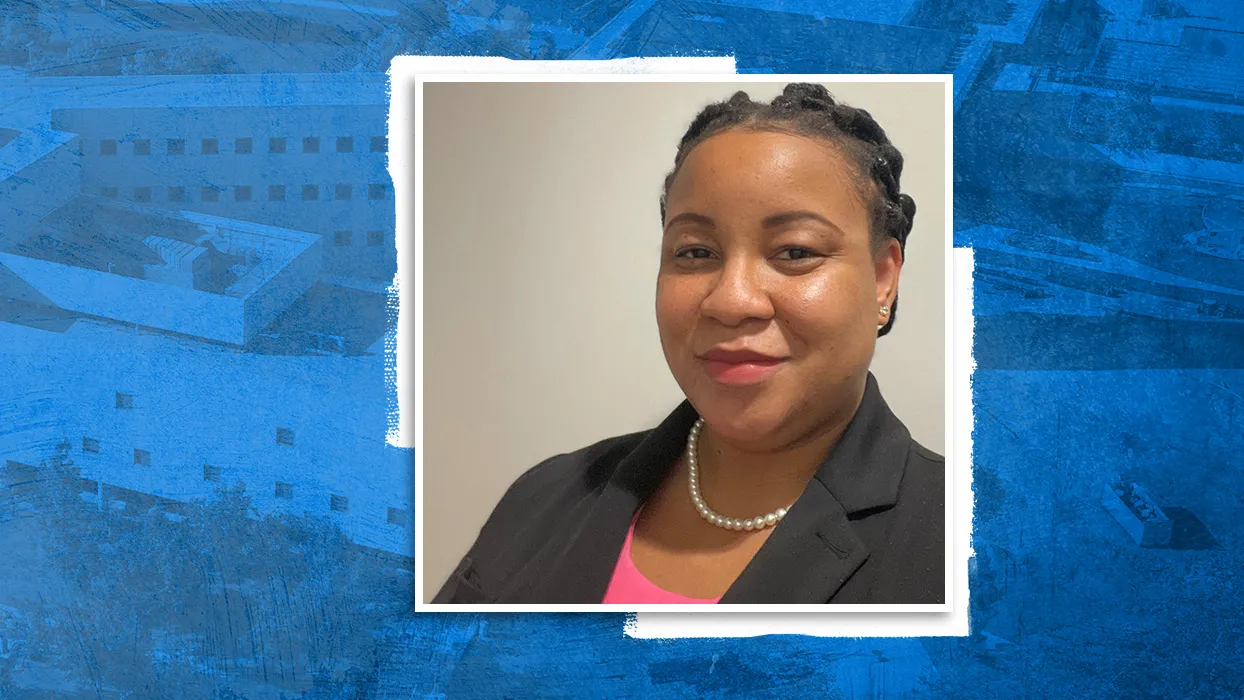Joe Gutierrez | Office of Strategic Communication | (909) 537-3007 | joeg@csusb.edu

When Chioma Nwagbala, MPA ’16, began Cal San Bernardino’s Master of Public Administration (MPA) program with a concentration in cybersecurity in 2013, she dubbed it her “redemption degree.”
As an undergraduate at the University of California, Irvine in 2008, she imagined pursuing a career in medicine, but soon decided chemistry wasn’t her strength. Thinking a career in law was a possibility, she began classes and then realized, “I liked criminology, but law was too dry.” Ultimately, she earned a degree in Spanish with a minor in education, but concluded, “Teachers don’t get paid enough. They do a fantastic job, but they don’t pay teachers enough.
“I struggled a bit in my bachelor’s degree program because I didn’t really know what I wanted to do,” she notes. After graduating in 2012 with a 2.97 GPA, she went back home to Eastvale, living with her parents. “Basically, for the next year, I was trying to figure out my life.”
When her parents proposed a graduate degree in cybersecurity, she was hesitant. “How could they even suggest I work with computers?” she says with mock indignation. Then, with a laugh, “I guess sometimes your parents know better.”
After being admitted to CSUSB’s MPA program, she immediately applied for a full scholarship offered through the Cybersecurity Center. Unfortunately, “I didn't get [it]. I didn’t have a 3.0 GPA. I think that’s probably one of the most disappointing things I’d ever experienced. I cried at the mailbox,” she recalled.
So began the “redemption” degree – her second chance to excel academically. With renewed determination, as she launched her master’s studies at CSUSB, she also began an associate degree in computer network administration and security management at Mt. San Antonio College. “The master’s degree program had five classes for the concentration,” she explains. “I wanted more technical knowledge for when I started applying for jobs. I was bouncing back and forth between two schools for three years. It was a crazy time.”
In addition to the academic demands, graduate students were required to complete an internship, an extremely competitive process, she says. “I think I put in hundreds of applications. As God would have it, I ended up with three internships.”
In winter quarter of 2015, she landed an internship at the CSU Chancellor’s Office in Long Beach as a student assistant with information security, as well as an internship at the Jurupa Community Services District in information technology. In the summer of 2015, she began a coveted 10-week internship with the Department of Justice (DOJ) in Chantilly, Virginia, working with the Cyber Division. When the internship ended, she was immediately hired for a position with the DOJ in Los Angeles.
“I’m definitely an overachiever,” she says, laughing. “And it truly was my redemption degree. By the time I graduated in 2016, I was in two honor societies, and I had a 3.69 GPA.”
After two years with the DOJ, she joined consulting firm Booz Allen Hamilton as a government contractor, still working with the Justice Department but in security operations, and relocated to the Washington, D.C. metro area.
After about a year-and-a-half on the DOJ contract, she joined another contract doing cyber- financial intelligence reporting with the Department of Treasury Financial Crimes Enforcement Network. While she enjoyed intelligence reporting, “I still wanted to get my hands dirty,” she says, and in January 2021, she joined what is now the Cyber Threat Management team at KPMG in Dallas, helping clients navigate cyber response and recovery as they build cyber resilience.
Reflecting on her journey, she’s come full circle since beginning the MPA program. “Initially, I wanted to go into public service, which is why I pursued an MPA. I worked for the community services district – local government. Then I worked for the CSU, which is state government. Then, for the DOJ – federal government. From there, I went into federal contracting, and now I work in private industry. Everything fit together in the end, but while it was happening, there were a lot of twists and turns,” she says, laughing.
Her advice for those considering a degree in cybersecurity? “Things are always changing, so be ready to be a lifelong learner. Ask questions – you’re not going to know everything all the time,” she says. “I would encourage anybody, if you want to do it, just do it. Find ways to get yourself trained up, find ways to get involved as far as networking goes. I know sometimes it’s hard to just get your foot in the door, but it’s not impossible.”